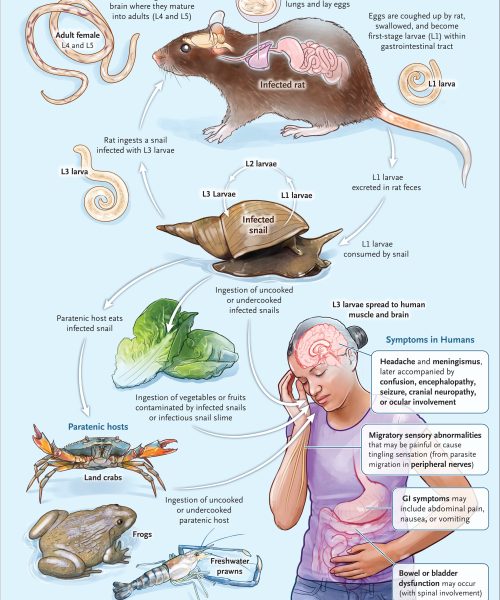
In New Hampshire, health officials announced the death of a 41-year-old man from a rare but deadly mosquito-borne illness called eastern equine encephalitis (EEE). Public health authorities are urging residents to take precautions, as at least two other people from the Northeast have reportedly been infected with the virus.
“In New Hampshire, mosquitos transmit infections including Eastern Equine Encephalitis Virus (EEEV), West Nile Virus, and Jamestown Canyon Virus,” State Epidemiologist Dr. Benjamin Chan said in a statement. “We believe there is an elevated risk for EEEV infections this year in New England given the positive mosquito samples identified. The risk will continue into the fall until there is a hard frost that kills the mosquitos. Everybody should take steps to prevent mosquito bites when they are outdoors.”
What is eastern equine encephalitis?
EEE is spread by the bites of some Aedes, Coquillettidia, and Culex mosquitoes and is not contagious from person to person. EEE has a higher death rate than the more common West Nile virus, at somewhere between 30 to 50 percent. According to the Centers for Disease Control and Prevention (CDC), only a few cases in the US are reported each year. Most of these occur in eastern or Gulf Coast states. So far this year, three people have been diagnosed in Massachusetts, Vermont, and New Hampshire. A 2019 outbreak was the largest human outbreak in almost 50 years, and included 38 cases with 12 fatalities.
[Related: 2019 has been a record-breaking year for this rare, deadly virus.]
The virus is known to spread in certain swamps, including red maple and white cedar swamps common in Massachusetts. While severe cases do occur, epidemiologists say that it is rare.
“People freak out, and I understand why, but it’s an emotional response, not a scientific one; there are more things in the world to be freaked out about,” Yale School of Medicine infectious disease expert Joseph Vinetz told The Washington Post. “But I understand why people are worried about it. If it happens to your family, it’s terrible, but it’s so vanishingly rare.”
What are the symptoms?
Most people infected with the virus won’t develop symptoms and those with compromised immune systems are at a greater risk. Those who do develop symptoms will usually see them four to 10 days after being bitten by a mosquito carrying the virus. These can include fever, chills, body aches, and joint pain.
In severe cases, the infection can lead to a neurological disease that includes swelling of the brain. Symptoms of this type of an infection with brain swelling include fever, headache, drowsiness, diarrhea, vomiting, seizures, behavioral changes–such as psychosis–and coma.
[Related: West Nile Virus cases are on the rise again: How to protect yourself.]
There currently aren’t any vaccines or treatments for humans. Some who survive EEE may face continuing neurological problems, including brain inflammation.
Horses, llamas, and alpacas are particularly susceptible to the disease. About 90 percent of infected horses can die from the disease. A vaccine is available for horses and the American Association of Equine Practitioners considers it a core vaccine.
According to the Massachusetts Department of Public Health, cases are very rare for domestic dogs and cats. Most will make a full recovery.
How can I protect myself and others?
According to the CDC, the best way to stay safe from any mosquito-borne illness is to protect yourself from mosquito bites. Use an Environmental Protection Agency (EPA)-registered insect repellent when spending time outdoors. Wear loose-fitting long-sleeved shirts and pants and also consider wearing outdoor clothing treated with permethrin–an insecticide that kills or repels mosquitoes.
It’s also important to take steps to control mosquitos both indoors and outdoors. Remove standing water from outdoor furniture, toys, buckets, and gardening tools. Keep in-tact screens on windows and doors when they are open.
[Related: Mosquitoes can sense our body heat.]
The mosquitoes that spread EEE are also most active from dawn to dusk, so using repellant and wearing protective clothing is particularly important if you must be outdoors during this time. In Massachusetts, health officials in the town of Oxford recommended an outdoor curfew from dusk to dawn.
At the same time, cases of West Nile Virus and Oropouche virus or “sloth fever” are also rising. Mosquitoes are considered the deadliest animals on Earth and as the planet’s temperatures continue to warm, cases of mosquito-borne illnesses are also expected to increase.





